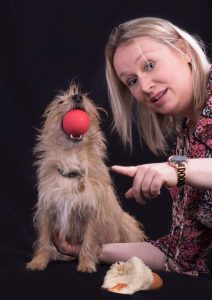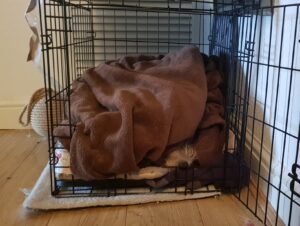Need help with Reactive Dog Behaviour? Join my FREE Facebook support group...
Marci – A rescue dog story
Marci is such an inspiration. Coming all the way from Bulgaria at the end of 2022, she was a bag of nerves when she arrived. In the first few days she panicked, slipped her lead, and went missing for several days. She has come along way since then, here is her amazing rescue dog story!
Early days
Marci had been in her new home for about three months when I first met her. She was already more comfortable with her immediate family and had started to show them glimpses of her personality during that time, which was great news. But, she was still a very anxious girl. She was reactive on her walks and was was reluctant to take treats or seek approval from anyone. This is very common with dogs that have been through a trauma.
In a state of trauma; the dog is in an almost permanent state of survival mode. In this mode, a dogs fight or flight instincts are activated and their reactive brain is in charge. So, dogs are quick to escape if they get even a tiny fright, and can act in other strange ways too. When survival mode is active, many normal bodily functions are affected. In particular, digestion is shut down, sleep is affected, reward seeking is shut down, and bladder and bowel are affected.
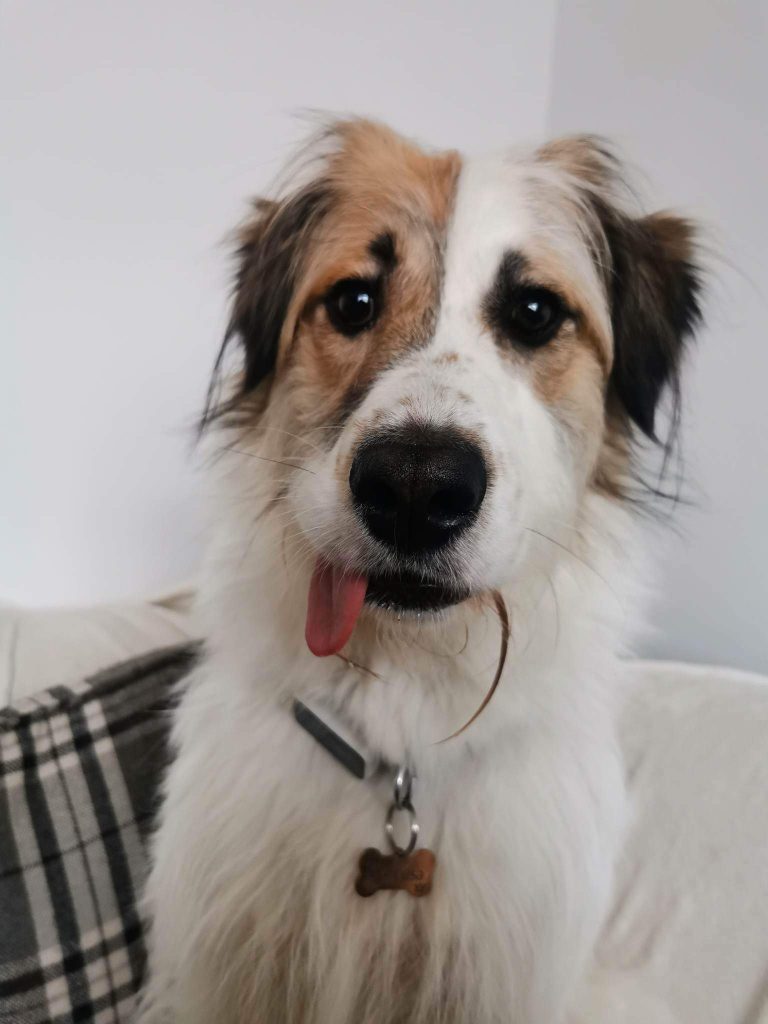
A safe space for Marci
Marci had a little den set up in the kitchen and most days she would wait until the house was quiet before eating, drinking or toileting. At night time her anxiety levels reduced enough that she dropped out of survival mode and those normal functions could resume. This was essential for her recovery.
Check out this video on what the first three days is like for a rescue dog
The den was Marci’s safe space in those early weeks. While she was safely tucked away, she was able to relax enough that trauma recovery could start. She was never going to recover while she was in survival mode, as her instincts were telling her to stay safe and run away.
All new rescue dogs need a place they can retreat to. Without a safe space, and time to decompress, many dogs struggle to feel safe in their new homes.
Strangers
As well as providing Marci a den, her family gave her time to come to them. This was important as trying to interact with a dog while they are in fight or flight mode just forces them deeper into trauma. It’s not unusual for a dog to snap at uninvited hands. But they gave her the space she needed, and never pushed her too far. As a result she came out of her shell much faster and had started to accept them and other key family members quickly.
She was very fearful around strangers though, at home and on her walks. When I first met her, she sat in the corner of the sofa and stared at me the whole time. That was hard enough for her, but if I moved or laughed, she would get a fright and growl or bark. She couldn’t think about anything else while I was there, so we made this a priority.
To work on this, we needed a couple of things! We needed a way to reward her, a target behaviour, and we needed to set some routines and expectations, so she could start to predict her day better.
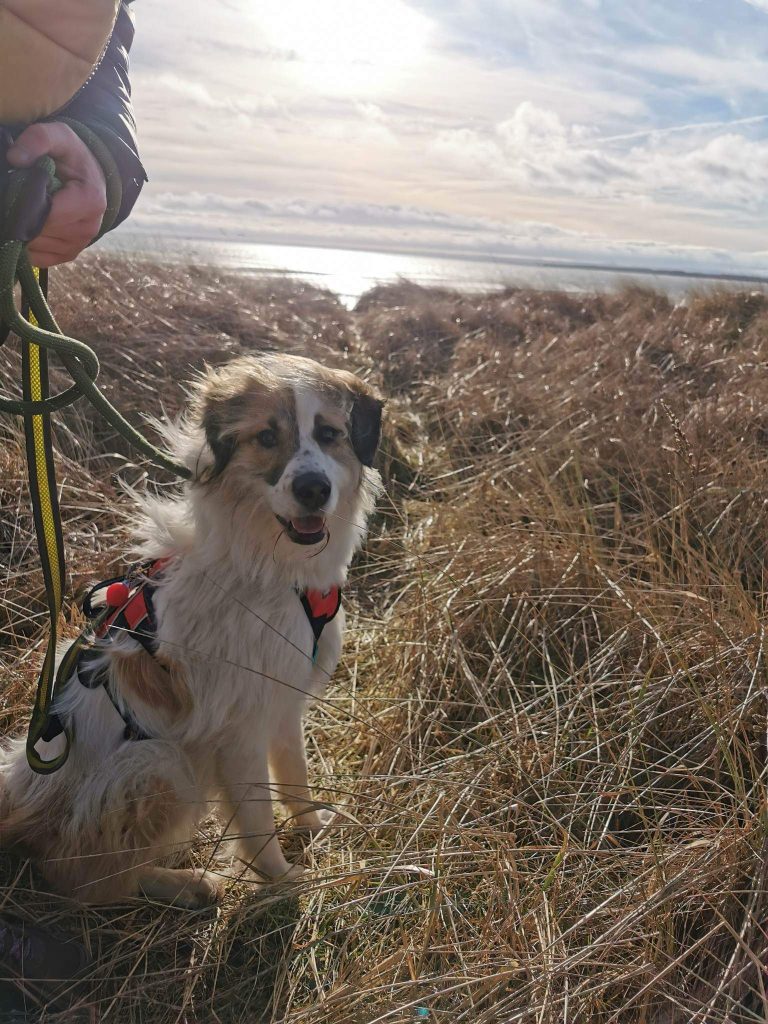
Marci’s first trick!
Marci didn’t appear to have had any training before she arrived in the UK. And as I mentioned earlier, she didn’t have much interest in rewards either. This gave us a few challenges. So, we considered a variety of options and settled on grated cheese. She looked vaguely interested in it, at least. She was more comfortable in the garden so we headed outside, and after some instruction, I went indoors and watched from the kitchen window.
It wouldn’t be unusual for me to watch from afar, as the presence of a stranger can easily unsettle anxious dogs. Much better to get out the way and let them get on with it!
We started with the “touch” command as it required the least amount of effort from Marci, it would also grow into a recall later, so two tricks for the price of one. I think she managed a couple before we called it a day. Everything moves extremely slowly for dogs that are in trauma. What looks like tiny changes to some can be huge milestones for an anxious dog. The fact that she managed any at all, was worth celebrating (quietly)!
I can’t imagine how hard that first training session was for Marci, but she was amazing. And the ball was now rolling. Not only did she start getting rewarded for something, but the experience had a bonding effect too. We also introduced a clicker to her in her first session. We would use this to build confidence later, mostly around strangers, but it would work in any situation she wasn’t sure of.
As the days followed, she started to really enjoy learning new things and the knock on effect was clear to see.
Moving fast!
By my second visit, she was like a different dog. She had started peeing and eating during the day and had discovered a few new treats that she liked! And not only that, she had started letting her guard down more and more, and was starting to really love her new life. She was still anxious about me arriving but settled quickly and there was no more barking after that. And, she even did a trick in front of me!
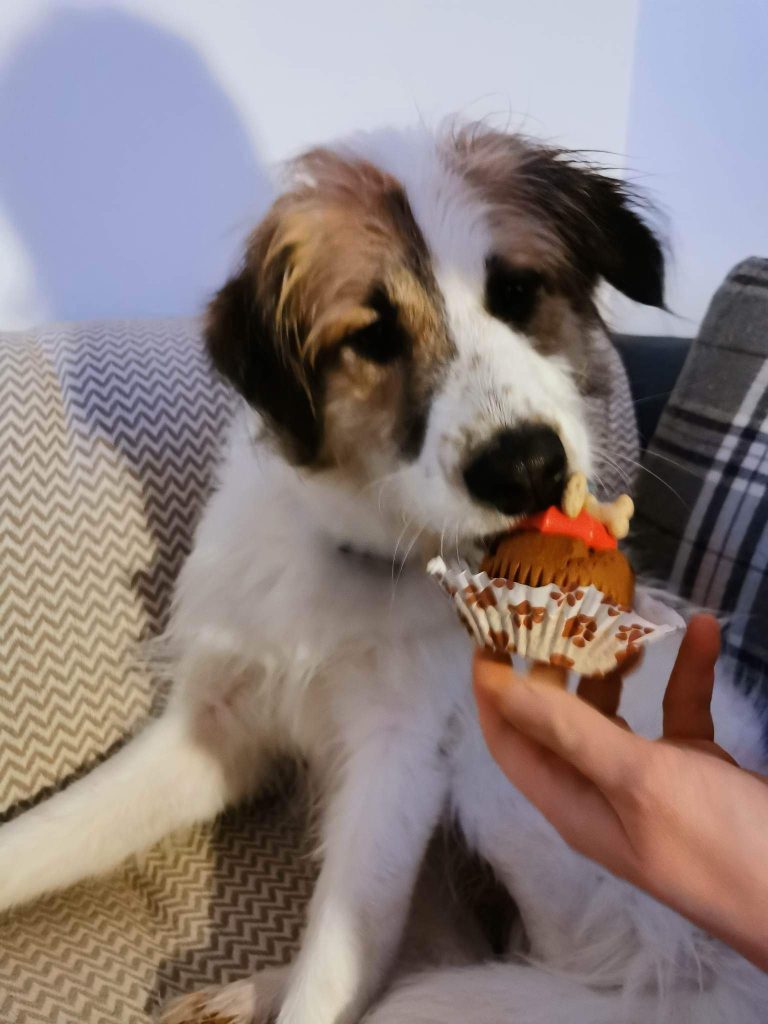
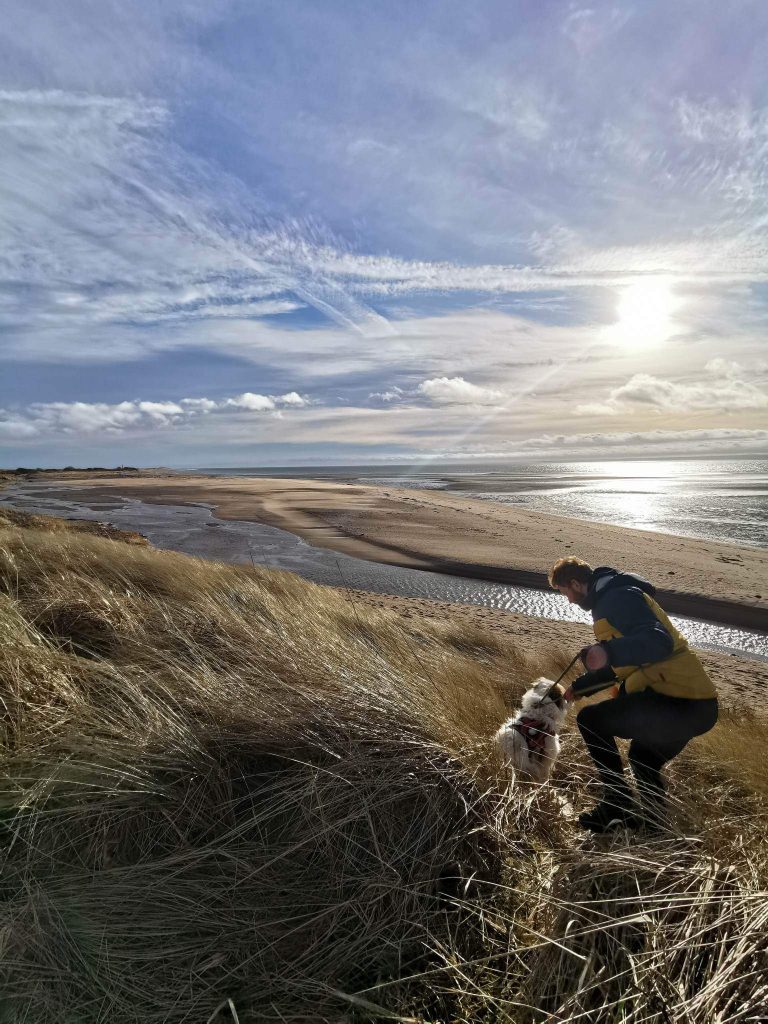
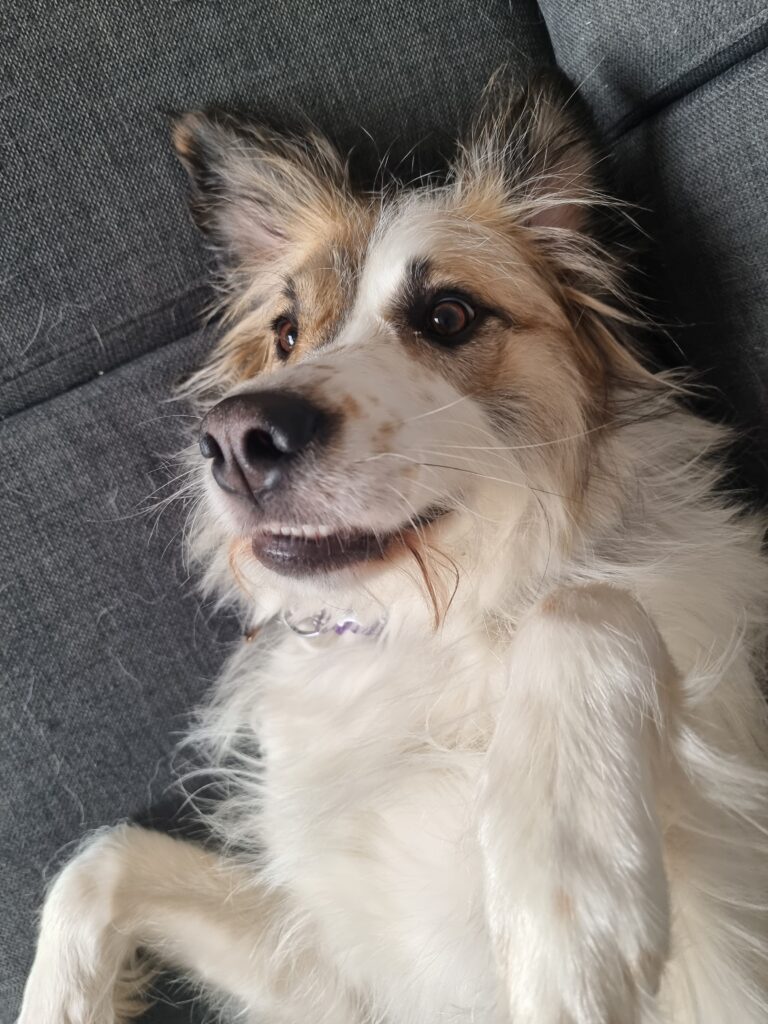
Now, she knew a focus trick, we could introduce that into much of her rehabilitation. It would help us to give her a positive behaviour to focus on whenever she was anxious and didn’t know what to do. And the clicker and treats would reinforce it, and build further confidence.
We also progressed to sit training as she was doing so well, and the clicker was really helping her on her walks. She was having a few issues with being left alone. With Christmas and holidays, this was probably to be expected. Rescue dog behaviour can be very changeable over the early weeks and months. As she settled in more and more, it was not surprising that she would react to unavoidable changes in routine. But, getting back to normal should fix that.
A different dog!
The last time I saw Marci at home, she actually fell asleep. I couldn’t believe it! She now plays with dogs on the beach, enjoys her long line and her recall is coming on well. She doesn’t really worry about strangers anymore, she doesn’t need her den, and she now sleeps upstairs!
Her family were amazing. They gave her time and space, and never pushed her too far. They were brilliant at recognising when Marci was approaching her limit and responded quickly. And they celebrated every success. The process can be painfully slow at the start, and keeping an eye on the wins is vital to keep you going. All I did was point them the right way, explain her behaviour, offer reassurance, and give them the confidence to try things they hadn’t thought of.
The future
She is still settling into her new life and will be for a while yet. Her family will be discovering more about her, over the coming months, and we’ll continue to monitor routines and new behaviours.
At the time of writing, Marci had been in the UK for 6 months. She has achieved so much in that time because she was given space and time. The first few weeks and months are make or break with all rescue dogs; not just street dogs or abused dogs. Many behaviour problems develop, or are made worse, in those early weeks, purely because the dog is pushed too quickly.
Are you struggling with your rescue dogs behaviour?
My recue dog course talks you through how to choose and settle a rescue dog over the first few months. Check out the FREE sample video which takes you through every step of how to choose your next rescue dog. The rest of the course focusses on the phases that follow and how to meet his changing needs over the days, weeks and months that follow.
Or, if you’d prefer more support, Private Dog Behaviour Consultations are currently available in the Dundee area and beyond, or via zoom. If you are looking for help solving your dogs behaviour and training problems, then please get in touch!
